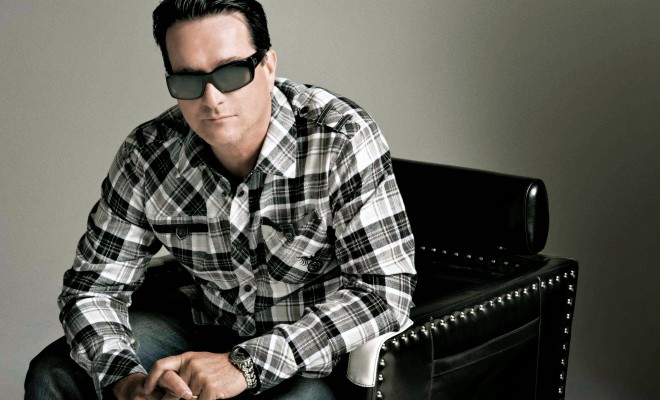
Ronnie King
Ronnie King is a “Multi-platinum, Oscar and Grammy nominated, Diamond Certified (more than 10 million units) producer, composer, arranger, musician and philanthropist”. He has worked with some of the greatest recording artists of our day including Mariah Carrey, The Offspring, Tupac Shakur, the infamous gangster rap group N.W.A including members Ice Cube and Dr. Dre, and Snoop Dog just to name a few. Having grown up in Southern California he is an integral part of the “OC” music scene. He is a classically trained keyboardist having received training through the prestigious music program Theory at Berkeley. He has toured with numerous bands performing at some of the largest venues around the world including Tokyo Dome in Japan. He is also heavily involved in philanthropic work and is playing a role in introducing local and indigenous music with its roots in the Southern California region to the rest of the world. Ronnie King is someone who “relentlessly and effortlessly feels the heart and soul of the artist…”
Hello Ronnie King! It is so great to have the chance to talk to you. You have had a long and multi-faceted career. Performing yourself as well as producing acts from genres diverse as punk, rap, country, rock and R&B.
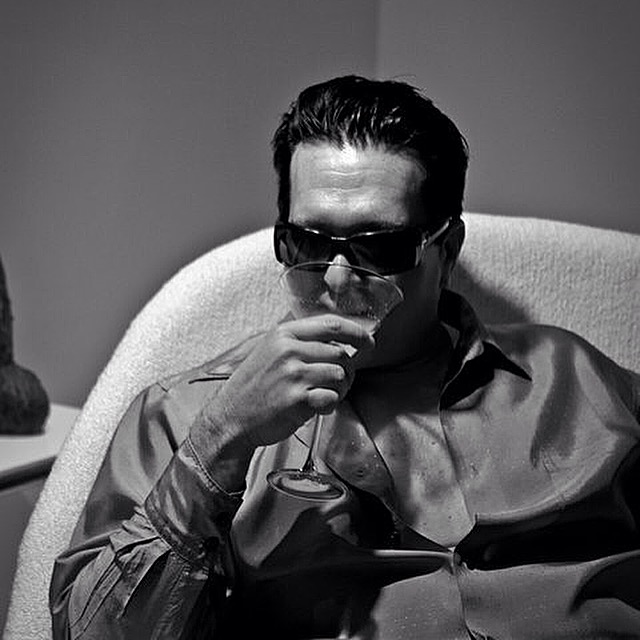 1. I’m curious to know about your early life – before coming to LA.
1. I’m curious to know about your early life – before coming to LA.
I grew up in a small town called Indio, which is next to Coachella where they have the Coachella Festival now. Boy… things have changed.
2. I have heard from your previous interviews that you come from a musical family. What instruments did your family play and did they write music?
Yes, all of my 6 brothers and sisters play music and instruments and write music. We used to write all kinds of ballads and love songs, we come from a pretty quiet upbringing.
3. Can you tell us about your early influences? What kind of music were you listening to as a kid?
I was listening to Barry Manilow, Shic, lots of R & B and, of course, the Beetles. Probably my biggest influences on the piano was Chick Coroa and McCoy Tinner – some pretty heavy Jazz virtuosos and let’s not forget the Catholic Church.
4. I heard your brother was a performer? What kind of music did he play?
I started at an early age with the family band and then moved on to playing professionally with my brother, John Stanley, at the age of 14 playing at weddings, community functions and parties.
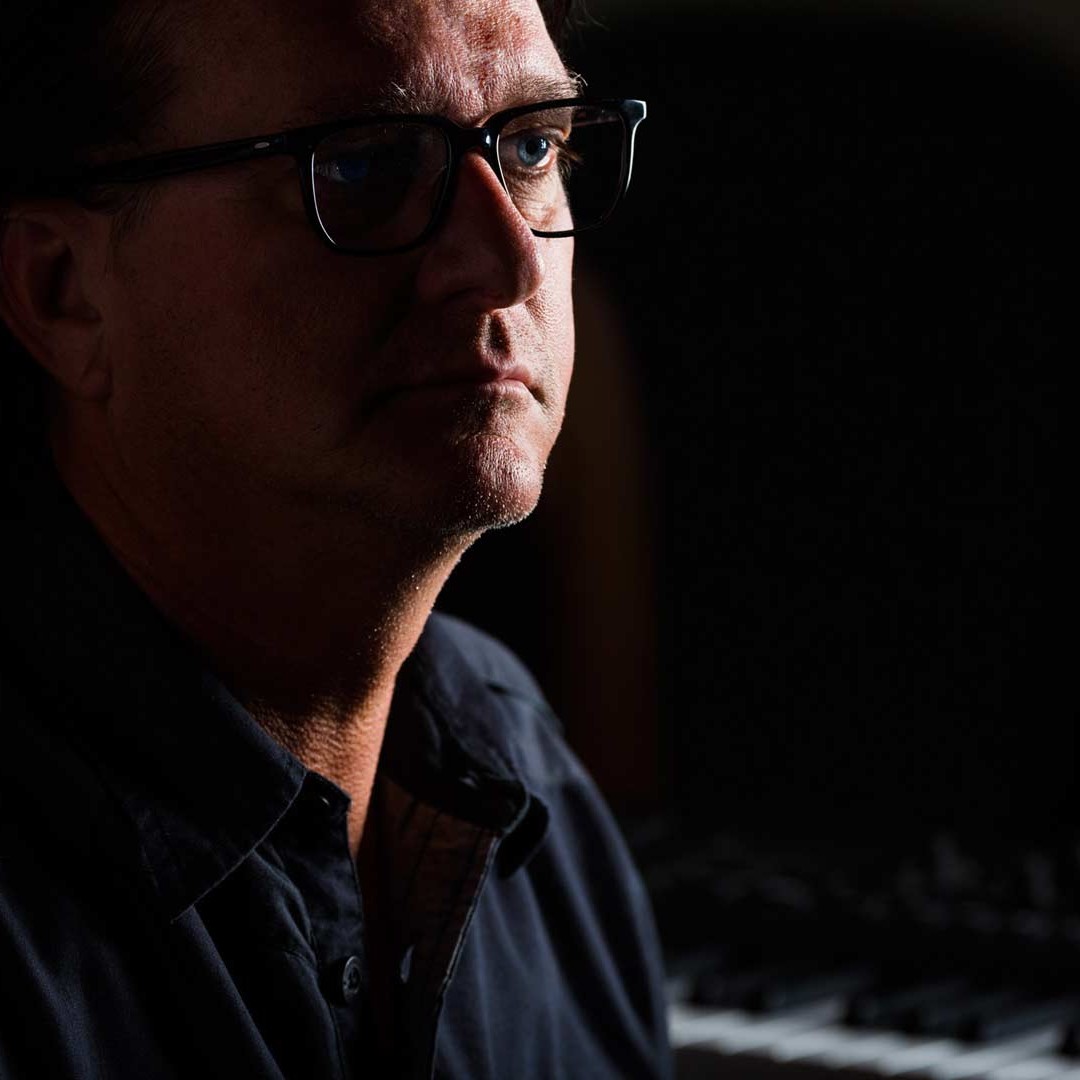 5. While most kids were out drinking with their friends you said you were making $300 a night. What inspired you to pursue this passion – it is amazing you had this maturity at such a young age.
5. While most kids were out drinking with their friends you said you were making $300 a night. What inspired you to pursue this passion – it is amazing you had this maturity at such a young age.
Yes, my friends were all out partying on Friday night and I was playing at the nightclub, but I come from a very wealthy environment with my friends, so in order to stay up with them, I worked. That way I would have money to play with all my friends. I have to thank my brother for my maturity, because he pushed me in to being a professional.
6. You’ve said you “wanted to be a suit”. Its obvious you saw the music industry as a business early on. What feeds your passion to develop people’s musical talents?
Yes, this is a business of music for me there is no doubt. I wanted to be a suit because I hung out with some of the best businessmen in my career and I really liked that positioning. In developing artists, I always try to encourage that side of the business as well as the creative. People don’t just become stars, you have to work at it.
 7. Can you tell us about your time studying theory through the Berkeley music program?
7. Can you tell us about your time studying theory through the Berkeley music program?
In ninth grade I got accepted to study Berkeley Theory at our local college. Not a lot of people wanted to know about music theory, so my brother, Glen, got me into the program. The rest is basically music history. What a great program.
8. Who was Joanna Hodges? What were some of the lessons she taught you during your studies?
Joanna Hodges was my piano teacher in college. She was very strict and organized the Virginia Waring Piano Competition – which is a very prestigious piano competition throughout the world. She was the one that really gave me the ultimatum of really buckling down and taking piano and classic music seriously or go into the music field. It was very demanding, so I picked Rock n Roll.
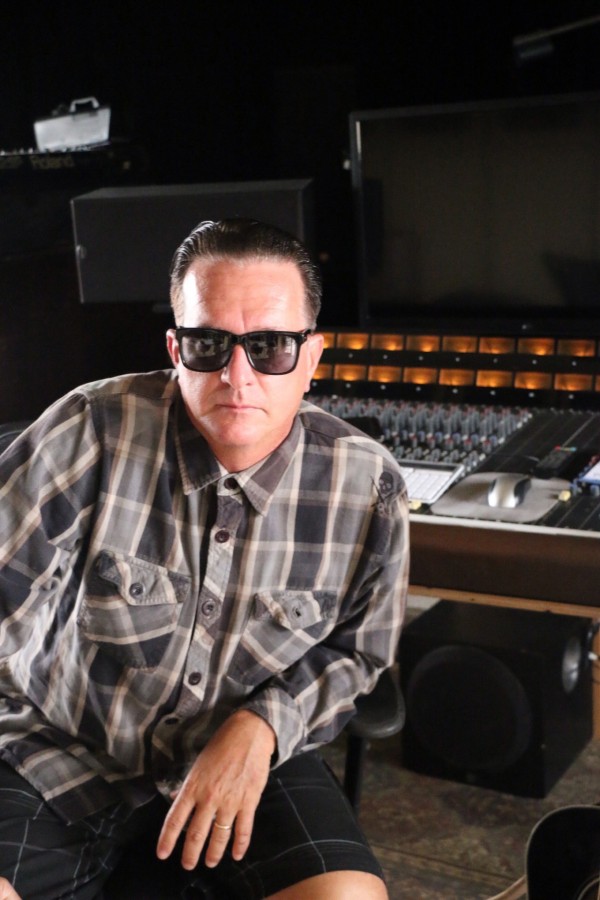 9. What were your plans when you went to LA?
9. What were your plans when you went to LA?
The only plan I had was to just play on as many records as possible and to play with as many artists as I could. That started happening rather immediately – I met a gentleman named Ritchie Rich from the LS Dream Team that promoted me all over South Central and Watts, California.
10. Soon after you arrived in LA you began working with the Offspring. How did you meet this band? What role have you played with the group?
Yes, about two years after I got to LA I was on tour with Timmie T – we had a number 1 hit in the country called One More Try. I began touring with him, my brother Bobby and Ritchie Rich. My keyboard technician at the time told me I needed to get out of hiphop and come meet his friend, Jack Grisham, of TSOL. From then, the rest is history – Jack took me under his wing, we got signed to Epitaph Records in the heyday of independent record companies and that is how I met the Offspring. I started touring with them a few years later after the Joykiller had taken a break and started recording with them in the studio at the same time. All the boys in the Offspring have been kind to me and we continue working together. Playing keyboards for the band has definitely been a highlight in my career.
11. How about the punk rock band Joykiller? Did you perform with the group? What is your relationship with the band?
The Joykiller was a band Jack Grisham and I started back in 1996. We wrote all the songs together and toured the world and had a great run. We just completed a new record after 15 years. Jack found cassette tapes in his garage and we decided to make a record. It is on ITunes and it is called Music for Breakups. Jack and I are not performing together at the moment, but we plan to in 2016.
12. I’ve seen it quoted that you see yourself as “This generation’s Billy Preston”.
Funny thing is that I didn’t quote that, that was a quote given to me by my publicist and it has stuck around because I play with as many bands as Billy Preston did in his career – that is the parallel.
13. Is Billy Preston a major influence for you? Did you listen to his music growing up?
Yes I did – it was hard not to as he played with the Beetles and I was really in to R&B
14. What kind of equipment have you used while performing over the years? Do you have a favorite instrument, a type of keyboard for example?
I do have a favorite and that is the Mini Moog and the Fender Rhodes.
15. I also know you use the Hammond organ. What is the Hammond? Can you describe it for us?
Hammond is a church organ that actually Billy Preston made very popular.
16. While working in LA you became involved with N.W.A, the hip hop group responsible for the infamous album Straight Outta Compton released in 1988. How did you meet Eazy E and become involved with N.W.A and Ruthless Records?
I got signed to a management deal with Morey Alexander and Jerry Heller. Jerry was the manager of NWA as well as owner of Ruthless Records in 1991.
17. Can you tell us about the role you played with the group and how you contributed to their albums?
I started making records with Eazy through Tony G, producer and DJ Julio G – one of my first records released with them was N.W.A and the rest is history – we recorded so many songs that were never released.
18. How important do you feel this group was to popular music culture in the United States at that time?
I know it was very important – it gave white suburbia accessibility to the streets of LA – the culture, the music, the food. That is how west coast hip hop was developed and made.
19. I’d like to talk about your association with Tupac Shakur. What I find interesting about the man is his lyricism. There was even a book of his poetry published. Early on, when he was in high school he was writing poetry.
I started making records with Tupac through record producer, Johnny J. I got signed on as a staff keyboard player at Death Row Records and worked exclusively with Tupac and Johnny J. Tupac was the lyrical genius of his time and I really loved working with him in the studio for many years making some of his biggest hits.
21. You have said that Tupac “took a bullet for the human race”. Tupac himself, in one of his raps says “I was born not to make it but I did”.
Tupac was a voice of a generation and the controversy of that remains.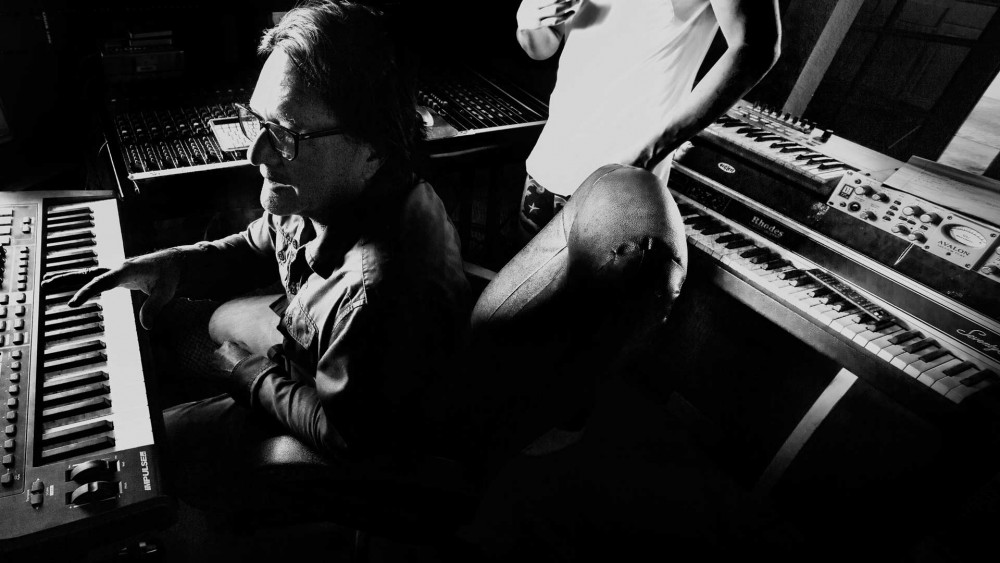
22. Do you see a relationship between your own personal trajectory within the music industry and his rise to national recognition? Do you think your career is different than it may have been if you had never worked with Tupac and N.W.A?
I’m lucky because I have gotten to work and continue to work with the biggest artists of my generation. Yes, my career would be different if I hadn’t worked with Tupac and Eazy E
23. Can you tell us about working with music mogul Jerry Heller? How did you make his acquaintance?
Like I said earlier, I got signed to a management deal with Morey Alexander and Jerry Heller. As the years went on I stayed very close to Jerry and his business. At one point, he started a record company called Streetlife Records and I was very involved in production and writing for the company. I would bring artists such as the Pointer Sisters and many others to the label. Shortly after that, Jerry got me a big time producer job at Dreamworks / Oblivion Records, where I learned a lot about the music business.
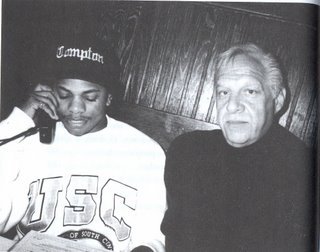 24. You have called Jerry Heller “The Hammer” and credit him with offering advice and wisdom during your career in the recording industry. Can you tell us about his creative involvement and how he has influenced your career?
24. You have called Jerry Heller “The Hammer” and credit him with offering advice and wisdom during your career in the recording industry. Can you tell us about his creative involvement and how he has influenced your career?
Jerry is a music business master. He sees things that normal people do not see not only in business, but in talent. Jerry Heller has an eye for talent first. His business practices are revolutionary and 10 steps ahead of everyone else.
25. Jerry Heller held Eazy-E in high regard and was impressed with his business intuition and ability to influence people to his advantage. Can you tell us about his role in managing the N.W.A act and how he cultivated the N.W.A brand?
Watch the movie – it says it all.
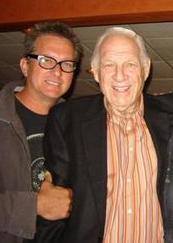 26. What was your role when working in the studio at Ruthless? What was it like spending long periods of time in the company of heavily armed rap stars whose creative output was so flagrantly violent and controversial?
26. What was your role when working in the studio at Ruthless? What was it like spending long periods of time in the company of heavily armed rap stars whose creative output was so flagrantly violent and controversial?
I choose not to talk about my studio experience if you don’t mind and my affiliation with Death Row.
27. Can you tell us about some of the tracks you were involved with creating?
The album Better Dayz, Tupac – Thug Life Outlawz Chapter Two, artist Thug Law – Paid to be the Boss, Snoop Dogg – Thug Angel, Tupac – Fantastic Voyage, Coolio – Until the End of Time, Tupac – Still I Rise, Outlawz – See You When You Get There, Coolio – Heavenz Movie, Bizzy Bone – Eastside Story, Frost – N.W.A, N.W.A There are many more, but this should get you going. My involvement was producing, writing, keyboards.
28. I heard Ice Cube had a few things to say about you.
My first recording session with Ice Cube. I was called to the studio at midnight by a producer friend of mine named Richie Rich. I walked into a recording studio called Echo Sound which was in Hollywood. I walk in with the Mini Moog under my arm and the whole studio went silent. Ice Cube was sitting there with members of the Eastsiders a rap group from South Central. He looked right at me and said “who and the hell call the police”. So the engineer who I had worked with before on many rap records, his name was Vachic, and he looked at Cube and said “oh this is Ronnie King he plays on everybody’s records”. Cube said “what’s this white boy gonna do”. So a couple of the other guys came in and gave me a big hug shook my hand and everyone was very excited. I plug my Minimoog in and went to work. After the session was over Cube came over and sad “you are a bad ass white boy”. And we’ve been friends ever since. He said he was a little confused because he thought they said Rodney King was going to come play the keyboards. And some years later I went to work with the Eastsiders again and had a good laugh.
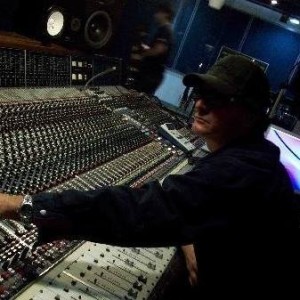 29. Your connection with such tragedies continued with the unfortunate early departure of producer Johnny J. Can you tell us a little about your relationship with Johnny?
29. Your connection with such tragedies continued with the unfortunate early departure of producer Johnny J. Can you tell us a little about your relationship with Johnny?
Johnny J was a great guy. The first time I met him we got along so good we went right to work and I really do feel I was his right hand man in creating music for many years until his early departure. He made amazing beats on the SP1200 drum machine like no one else I had ever seen before. He is survived by two beautiful children and a wife.
30. Johnny had been using samples frequently in his recordings. During that time the sampling laws were changed making a lot of what he was doing impossible. Were Johnny’s samplings responsible for the changes to the law?
Yes, the sampling laws changed a lot at that time. The use of original recordings was getting harder and harder so we replayed everything. No, Johnny was not responsible for law changes.
31. Did those sampling laws effect your own participation in the songs being recorded, and in the role you were playing in the music industry generally?
No it actually made my business better because I was the guy who would play all the original samples – that was a leg up for me and launched my career in the studio.
32. You talk about “Punks and Thugs” and their commonality as being “rejects from society”. Both groups represent communities on the fringes of society. Can you talk about these communities and your efforts to give them a voice in the larger musical arena? What are some of the reasons we have a punk and rap genre in the musical world?
I coined the phrase Punks and Thugs many years ago when I was with the group Rancid, so one day I put Rancid and Thug Life together in the studio and it dawned on me that we were all in the same game – there was no black or white, east or west, we were all part of the same coin.
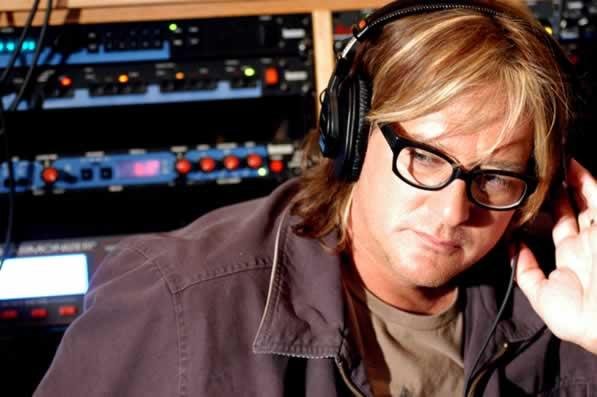 33. Beyond their commonalities, what do you see as unique within each community. What is the significance of rap and punk in the larger context of the musical world?
33. Beyond their commonalities, what do you see as unique within each community. What is the significance of rap and punk in the larger context of the musical world?
Music is music – it is expression – its what brings us all together.
34. Do the artists see their music as having an influence that is broader than their fans and the records they are able to sell? Are people like Tupac trying to give voice to something beyond themselves?
We are all creative people and just speak what is in our heart.
35. Do you see yourself as having motives beyond simply promoting band’s acts and selling records? Do you see the influence they have had on popular culture as a byproduct of music promotion or as an intended goal that has been pursued during your career?
No – I just play music
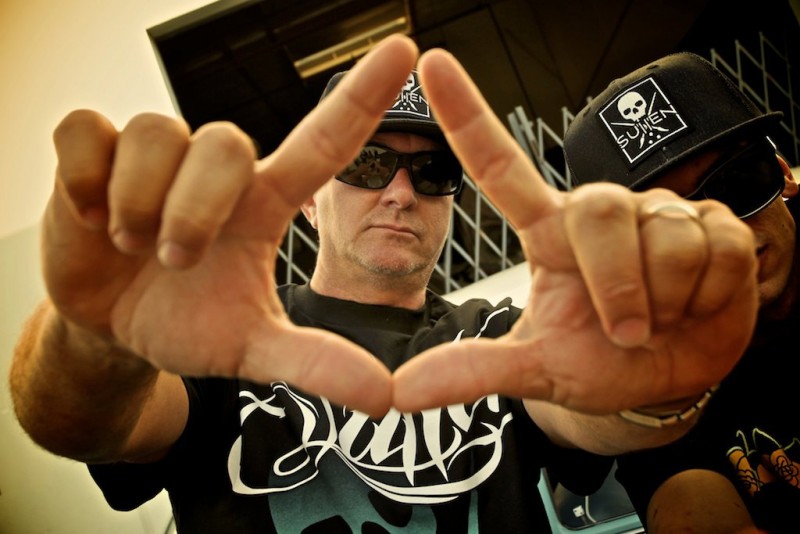 36. More generally, you have established yourself as an integral part of the OC music scene. Generally speaking, what are some of the characteristics that make music being produced in the OC unique?
36. More generally, you have established yourself as an integral part of the OC music scene. Generally speaking, what are some of the characteristics that make music being produced in the OC unique?
In OC we have the beach and surf culture. The atmosphere here is one of nature, the ocean and a spirit of the good life. That is different than any other inner cities I have made music in.
37. What are the people like there? What kind of music are they listening to as they grow up and begin to take up instruments themselves and start bands?
People in OC are chill – it is a beach community. We are listening to a lot of Raggae – Pepper, Seedless – most of the Reggae music is coming out of my friends studio, 17th Street Studios.
38. What are some of the traits you look for when scouting a new act?
Talent and commitment.
39. What are some of the things you do to ensure the bands you are promoting have everything they need to find success recording their records?
I try to make them as great and comfortable as they can when recording in the music studio.
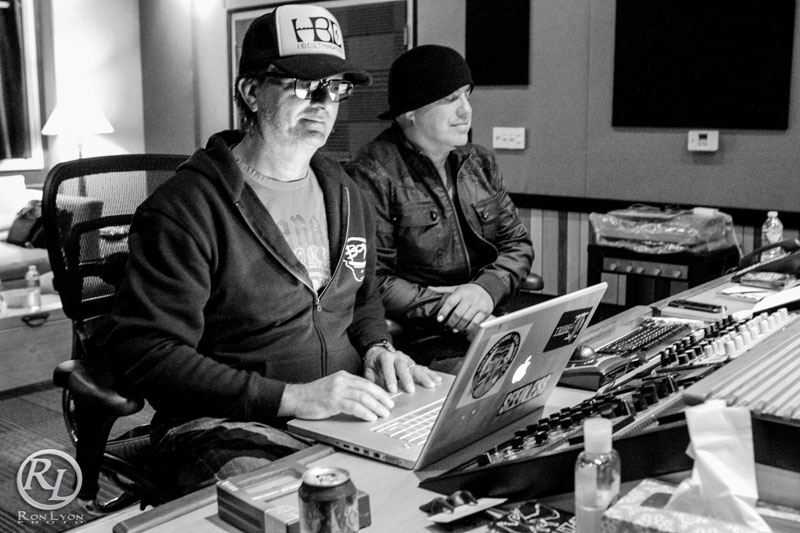 40. You’ve also been promoting metal acts. Are the metal acts you work with exclusively OC based or are you looking for talent from other regions
40. You’ve also been promoting metal acts. Are the metal acts you work with exclusively OC based or are you looking for talent from other regions
Yes I am producing a lot of metal out of OC with bands like Core 10, Atomflower, Dirty Water, etc. I am very excited to have Ulrich Wild doing my mixing for me. He is amazing.
41. Who is Core 10?
Core 10 is one of the biggest metal bands coming out of OC – we are seeking management and a record deal. Keep an eye out.
42. How about Atomflower? Can you describe their act? Where are they from?
Atomflower is the solo project from Sean Michael Lenhoff from Huntington Beach. We drop the single this next week – gonna be fun.
43. The OC has a unique style. The tattoos, the leather and plaid. Can you talk a little bit about the way the creative talent you work with choses to dress? What are some of the labels they are wearing? Do they have brands they prefer to wear?
We wear everything from the local designers to the established brands. I particularly love Sullen, they make great tattoo cloths.
44. The tattoo culture is part and parcel of the OC punk scene. Have you had any tattoos done yourself?
No, I don’t have any tattoos – all my friends are tatted – it looks cool on them. It’s amazing I don’t have any.
45. Can you talk to us about your philanthropic work? Recently you’ve said you have been working with Native Americans.
Yes, my life changed when I met a tribe called the Torres Martinez – I have enjoyed their cultural native songs and getting to know their culture – changed my life.
46. Can you tell us about the 40 Bird Songs? What are these and how are they important to the tribe?
The bird songs are their journey songs – they span hundreds of years passed down generation to generation – they are very important to their preservation.
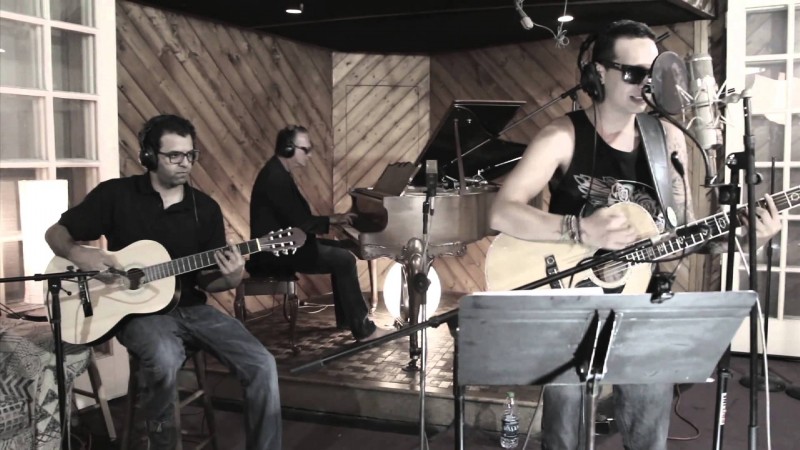 47. I understand you have been recording these songs, the first time the traditional songs have been documented?
47. I understand you have been recording these songs, the first time the traditional songs have been documented?
Yes, many of them were never recorded before, ever.
48. And can you tell us about the way you have been combining these songs with reggae? Who are Higher Heights?
Yes, we just combined native chant with our local desert Raggae band Higher Heights – it is an amazing combination.
49. Who is Mike Miralez? How has he been influenced by the Bird Songs and what is he intending to do with them?
Mike Miralez is a leader in the community with the teaching of bird songs throughout the world. I am excited to bring his record out soon.
50. What is Desert Reggae? I usually imagine reggae as coming from island locales like in the Caribbean. What are some of the characteristics of the Desert Reggae that distinguishes it from other forms of Reggae?
Desert Raggae is more of a dirty dusty tribal approach at Raggae music – more sand and less water.
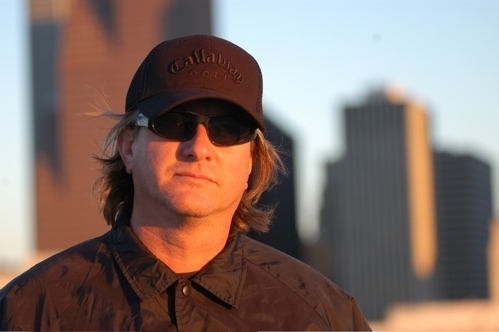 51. Music is being used as a source of guidance for young people growing up within these communities. Do you find that the youths you are working with are responding to the music?
51. Music is being used as a source of guidance for young people growing up within these communities. Do you find that the youths you are working with are responding to the music?
Yes, youth respond to anything cool and different.
52. You recently travelled to Orvietto, Italy to play piano for a live concert there. Can you tell us about the event? Who performed? How can we view the performance?
I had the privilege of performing with a 100 piece orchestra in the city of Orvieto – they played songs I had written with song writer and producer Marco Bosco to see the footage go to orvieto4ever.com.
53. I also see you are doing some work in Costa Rica. Can you tell us what’s going on there? I heard you will be meeting with the president!
I haven’t met the president yet, but soon. We are creating one of the largest entertainment companies in the country of Costa Rica. This will give artists all over the world a platform to share their music and bring awareness to how beautiful the music from Costa Rica is.
54. Can you tell us about some of your experiences traveling in Japan?
I can. The first time I went there was touring with Rancid and we decided that trip would be a trip for us to take our wives. We had the best time traveling on the bullet trains, etc. We played some of the biggest venues in the country with TV and radio. That is when I got hooked. I love Japan. One of my best memories was taking my life to Nagoya and going to a temple with it snowing on us. A very awesome experience – one I will treasure forever. Some years later I toured with the Offspring there and performed at the biggest stadiums in the country, Osaka Dome, Budakan, Tokyo Dome and many more. We performed on the biggest TV shows around and drank lots of saké.
55. How can the Japanese people learn more about the performers you work with? What names should they be looking for when looking for some cool new groups from America to get into?
Man, just go to Ronniekingmusic.com for all music updates
Thank you for talking to Ninjagirl Ronnie King! I’m amazed at all the things you have done in your life!
I look forward to meeting everyone very soon Ninjagirl – you are amazing.
RK
edited by Anthony Heller

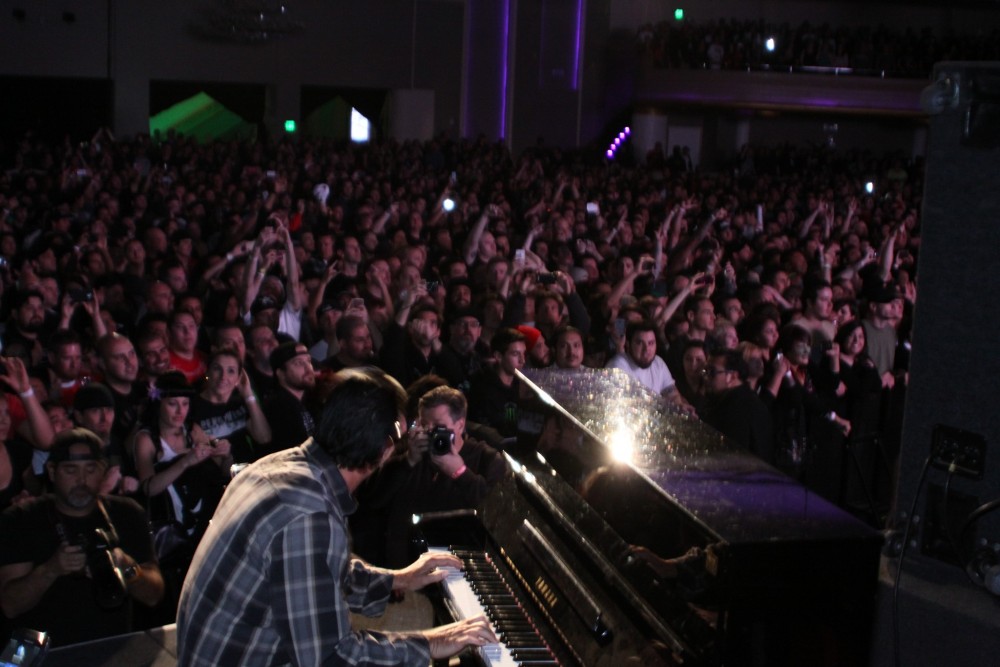




You must be logged in to post a comment Login